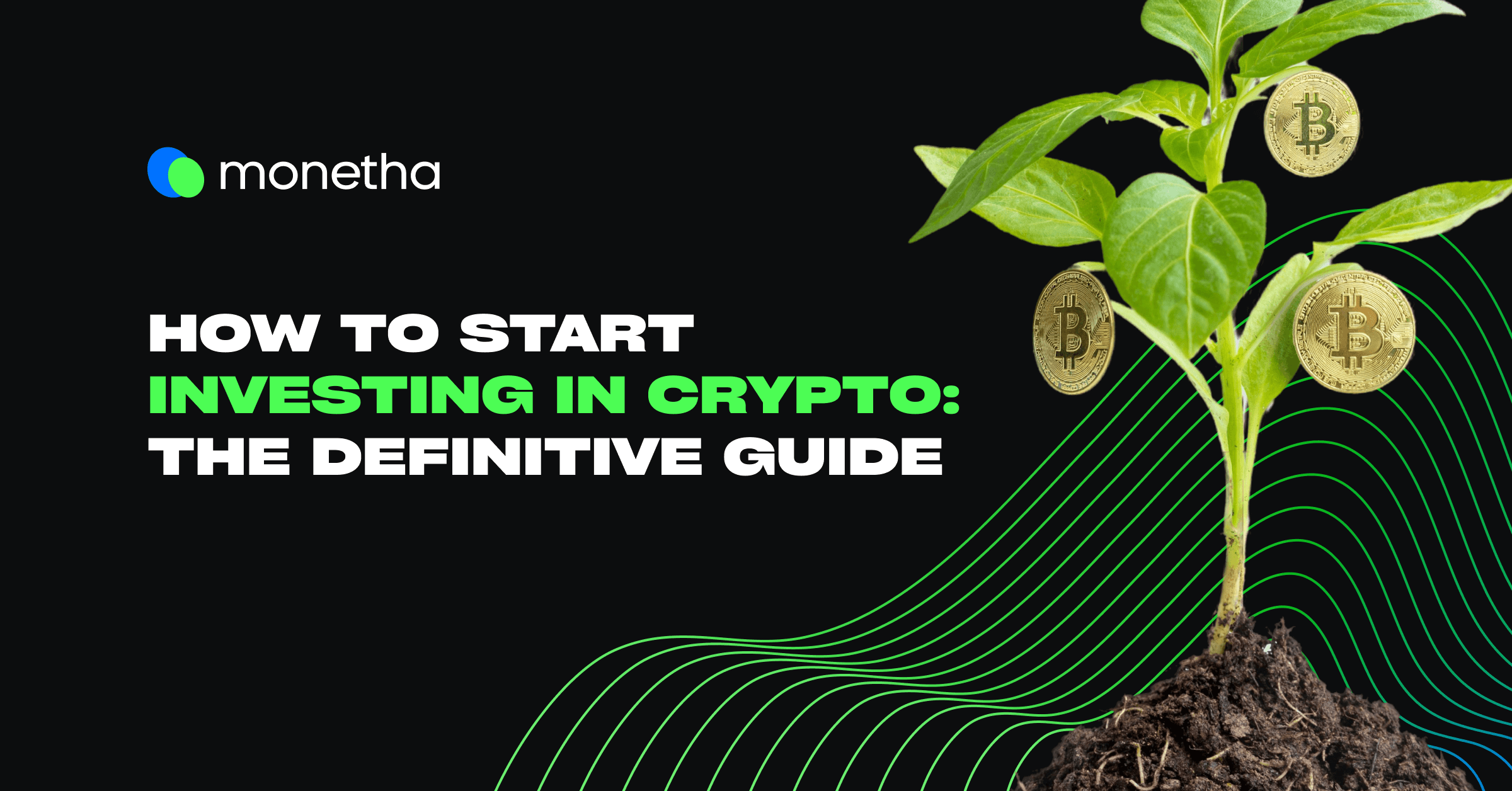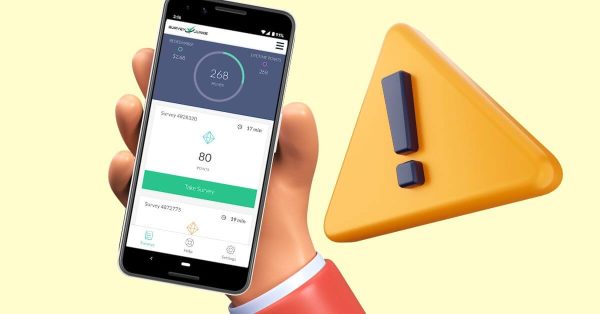Cryptocurrency, often referred to as crypto, has moved from near nonexistence ten years ago to a multi-trillion dollar market. While Bitcoin is the most recognized digital currency, there were 18,000 cryptocurrency currencies as of March 2022. Also referred to as digital currency and altcoins, they offer an alternative means of payment, as well as becoming a fast-growing investment market.
To demonstrate market volatility, Bitcoin went from a fraction of a cent in 2009 to over $66,000 a “coin” in 2021. However, the price has subsequently fallen back to $21,000, reflecting the rollercoaster ride of this new digital asset market. At its peak, Bitcoin was worth more than $1 trillion!
Over the last couple of years, crypto has moved from what many deemed a niche market to the mainstream marketplace. Numerous well-known businesses, such as Microsoft, PayPal, Home Depot and Starbucks, are now accepting digital currencies as payment for goods and services. We have also seen the emergence of a new trend in the retail sector, converting shopping reward points into cryptocurrency, with the Monetha App a leader in this area. Amid all the hype and speculation, what does the future hold for crypto?
It's so easy to earn free crypto!
Do your regular shopping via rewards app, earn points and exchange them to crypto, including BTC, ETH, BNB or USDT!
1. Study and Understand the Market
If you’re looking to invest in the crypto market, it is important that you are aware of how it works, your options and the pros and cons, so that you can make an informed decision. Unfortunately, far too many people have been introduced to this market via stories of excessive profits and “easy money”. While it is true to say that many people have made a lot of money with it, others have not been so fortunate.
We will now take a look at the basics, what is cryptocurrency, how does it work, and what is the much discussed blockchain technology?
What is Cryptocurrency?
Contrary to the images you may see, such as the gold Bitcoin with the logo in the middle, these are digital, not physical currencies. This type of image may allow people to visualize cryptocurrency, but many are under a misapprehension these are physical coins. So if they aren’t physical coins, what are they?
Often described as virtual currencies, cryptocurrencies operate on a decentralized structure, meaning no direct involvement from banks or governments. In addition, the use of what is known as blockchain technology, an encrypted and secure digital ledger, allows all transactions to be validated. While the ability to move funds worldwide without being tracked was one of the original attractions of crypto, the situation has changed. Digital currencies are now mainstream and used in many different scenarios.
While some see crypto as an investment asset, others see them as a modern-day currency. Even though the concept is relatively straightforward, there is a degree of misunderstanding and misinformation in practice. Whether you want to convert your Monetha shopping points into crypto or invest money directly into one of the many currencies, it is essential to know what they are and how they work.
You will often hear of mining as a means of earning coins. This involves a massive decentralized network of computers spread across the globe, using colossal processing capacity. They are used to carrying out complex transactions which verify and safeguard blockchains. Blockchain, according to many experts, is the most secure type of identification system in the world. Those “miners” who complete these complex transactions are rewarded with cryptocurrencies.
How Does It Work?
As cryptocurrency is not a physical currency, there are no notes and coins, and all transactions are carried out electronically. This is the reason why many refer to cryptocurrency as a digital currency. In addition, each transaction is entered into a secure digital ledger, better known as a blockchain. So while there is no physical record of who bought, sold or transferred a digital currency, there is a record of each transaction.
Akin to a foreign exchange, where traditional currencies are exchanged, cryptocurrency is converted on an exchange. This allows individuals and businesses to convert fiat money, those made legal tender by governments, into cryptocurrency. The digital currency is held in what is referred to as a “wallet”, which is an electronic storage system. In the early days, the security of these electronic wallets was often called into question. However, there have been significant improvements in security since then.
You will also come across what is referred to as stablecoins when buying and selling digital currencies on a crypto exchange. These are effectively quasi-traditional currencies as they are pegged to the dollar, sterling or other recognized traditional currency. In layman’s terms, these are holding coins, a way in which you can hold your funds on an exchange without exposure to a digital currency. Some of the best-known stablecoins are the Tether, USD Coin and Binance USD.
While many people express concern about the asset backing for cryptocurrencies, it is very similar to traditional currencies. Previously, traditional currencies such as the dollar were backed by what is known as the “gold standard”. This saw the value of a currency fixed to gold reserves or the currency of a country with gold reserves. This system was terminated by the US government in the 1970s, with currencies now more volatile due to their supply/demand valuation basis. This is a similar format to cryptocurrencies, where there is no asset backing, and it is simply down to supply and demand. So, is there really a difference?
What is Blockchain Technology?
While blockchain technology is more commonly associated with cryptocurrencies, it is a system which can be used to track and validate any asset. The beauty of blockchain technology is the fact that it can be used for both tangible and intangible assets. How the system works is relatively simple in theory, but complex in practice.
Each transaction is recorded on a digital ledger linked to the previous activity in that asset, and this line can be traced back to day one. These transactions are bulked into groups, creating a system that is almost hack proof. It is virtually impossible to change any historic transactions without impacting future transactions, thereby throwing up a red flag. This level of security is complicated to beat; therefore, blockchain technology is, in the eyes of many experts, the future.
A recent report by Blockdata showed that 81 of the top 100 companies in the world are either researching or already using blockchain technology. However, akin to, for example, Artificial Intelligence (AI), concerns regarding new technology amongst consumers are often years after the technology has already been introduced. Sometimes without us even knowing!
2. Have an Investment Plan and Manage Risk
If you are looking at an investment in cryptocurrencies or any other type of asset, you must have an investment plan and a way to manage risk. The simple fact is that without risk, there is no reward. Therefore, it is essential to be aware of the risk/reward ratio. Does it warrant an investment? Are the potential rewards higher than the potential risk?
While you will hear stories of many investors making huge gains on the crypto market, you don’t usually hear about those who lost money. Over the last couple of years, we have seen governments and central banks worldwide take a greater interest in the cryptocurrency market. As with any new trend, they initially ignore then they dismiss it, embrace it and then tax it. We saw the same with electronic cigarettes; will it be any different with cryptocurrencies?
Consequently, it is vital to have an investment plan to manage risk, limiting your downside while maximizing your upside. But, of course, the key to any investment plan is to know your starting point, direction of travel and destination. This is not to suggest that these factors won’t change as you proceed forward, but unless you know where you are going, how will you know when you get there?
In the words of the famous Warren Buffett:-
“Never invest in a business you cannot understand.”
3. Be Aware of the Volatility of the Market
Perhaps one of the best ways to demonstrate the cryptocurrency market’s volatility is to look at the first-ever transaction. On 22 May 2010, computer programmer Laszlo Hanyecz spent 10,000 Bitcoins on two pizzas from Papa John’s. The transaction was valued at $41, with each Bitcoin worth $0.0041. Fast-forward to 2021, Bitcoin peaking at a staggering $66,000, and you would see the transaction valued at $660 million. Although the price has since fallen to around $21,000 that is still two very expensive pizzas!
Over the last 12 months, we have seen massive volatility in the market as a consequence of:
- Regulatory threats
- Cost of living/economic pressures
- Uncertainty about the future of some digital currencies
- Concern that some stablecoins are unviable
- A reduced appetite for risk amongst investors
While many experts believe that the leading cryptocurrencies are “too big to fail”, akin to the banks during the 2008 US mortgage crisis, there is a range of different views. Therefore, you must be aware of the potential volatility of digital currencies, the issues causing this volatility and the potential long-term impact. For example, while one of the initial attractions of crypto was that central banks and governments played no direct role, this is likely to change in the future.
The market is now seen by many as an integral part of the worldwide investment scene. Consequently, it is here to stay, but the regulatory framework in which it will operate has still to be decided. As a result, rumors and counter rumors can and have caused considerable fluctuations in cryptocurrencies, which will likely continue for some time.
Increase your purchasing power
Your hard earned money spent via Monetha’s app are worth more. Get rewarded with every purchase you make and redeem rewards to cryptocurrency!
4. Invest Only What You Can Afford
Many would say that the biggest challenge to any investor is ego, knowing when you got it wrong and when to walk away. But, unfortunately, in the world of investment, nothing is ever certain, there is no easy money, and you must only invest what you can afford to potentially lose. Therefore, you must go into every investment with a long-term horizon, although if the possibility of a short-term profit arises, there is nothing wrong in taking it.
In a perfect world, when investing in cryptocurrency or any other asset, you must be able to sleep at night; in the knowledge losing your investment would not change your life. However, if you are under any financial pressure and may need these funds at any moment, this will likely affect your judgement. It is fair to say that the world of digital currencies highly volatile and challenging, and you can often fluctuate from significant losses to large profits and back again in a matter of hours. Those who increase their firepower by taking on debt, and leveraging their investments, are on a hiding to nothing.
Traditionally, many people would look at mutual investments as a means of spreading the risk across a range of assets. This is a sensible approach compared to putting all your funds into one cryptocurrency, but it is still risky. Even mutual funds and Exchange-Traded Funds (ETFs) focused on crypto assets have experienced marked volatility.
5. Define Your Portfolio Allocation
There are many factors to consider when considering your portfolio allocation and “sensible” investment in crypto assets. First, as we touched on above, there is the option to look towards mutual and ETFs, which are focused on digital currencies and other digital assets.
You will also find that the structure of your portfolio will change as you grow older, with many looking towards safer investments as they approach retirement. That is not to say you cannot hold an element of high-risk/potential high-return assets such as crypto, but you need to be sensible. Monitor the markets, consider the opinion of experts and, where applicable, take financial advice. However, ultimately, the decision will be down to you.
6. Choose the Best Broker or Exchange
A crypto broker or crypto exchange is the most common way of investing in digital currencies. While a broker may be able to offer you advice and guidance and carry out transactions on your behalf, an exchange is a marketplace similar to a stock market. As digital currencies are so far unregulated, working with an established broker/exchange is crucial.
What is a Crypto Exchange?
Many different crypto exchanges now offer access to a range of digital currencies. These exchanges have developed over the years. As well as simple trading in cryptocurrencies, you can do swaps and earn interest on your assets, with some even offering a degree of leverage.
These exchanges are now under pressure from global regulators to take a greater interest in their clients. Historically, an element of the cryptocurrency market was used for fraudulent/criminal activities because there was no centralized system or regulations. In effect, criminals could deal anonymously, transferring vast amounts of money around the world.
Now, the vast majority of digital currencies trading is carried out by investors taking a short, medium and long-term outlook. Many believe by regulating the exchanges, government regulators will be able to control the cryptocurrency industry. We shall see!
What is a Crypto Broker?
A crypto broker is an intermediary between an investor and the cryptocurrency market. Even though digital currencies are currently unregulated in many areas of the world, some brokers may offer a degree of advice before carrying out client transactions. It is essential to be aware of the limited protection for investors compared to more traditional investment assets.
As night follows day, the industry will eventually be regulated, as will brokers offering advice and carrying out transactions for their clients. There has even been talk of the US central bank and other central banks introducing government-backed cryptocurrencies. There is a lot going on!
7. Create an Account
In theory, setting up an account on a cryptocurrency exchange is relatively straightforward. However, in practice, recent intervention by regulators across the globe has led to a slightly more complicated process. To be “taken seriously”, many exchanges now require documentation akin to those needed when setting up a standard bank account.
While many will accuse the industry of “dubbing down”, it is essential to note that this more in-depth approach to account creation helps all parties. It is also a tiny step on the road to traditional regulations and the inclusion of digital currencies in the regulated mainstream market. So, what exactly do you need to create a cryptocurrency account?
What Do You Need to Create an Account?
As we touched on above, the mainstream crypto exchanges are now tightening their account creation processes to take accommodate traditional money-laundering and “know your client” regulations.
The historic process for opening a new account on an exchange was simple. All you needed was your name, email address, bank account and verification code. While this approach may have seemed relatively relaxed, it is essential to note the use of an existing bank account. In theory, those with a current bank account would already have been money laundered and verified by the bank. Consequently, crypto markets saw little need to duplicate this process in the early days. However, regulatory pressures have changed this approach of late to a more traditional money-laundering/know your client style process.
The mainstream exchanges have now reverted to a traditional verification process. While it could vary from exchange to exchange, you may be asked to supply any or all of the following information:-
- Full legal name
- Date of birth
- Email address
- Telephone number
- Home/business address
- Copy of utility bill sent to the registered address
- Social Security number/national insurance number
- Driver’s license, passport, or other government-issued ID
- A “selfie” photograph of you holding a form of government-issued ID
You may also find that some exchanges will inquire about the nature of your interest in digital currencies, experience and attitude to risk. To some, this may seem an overzealous approach to the cryptocurrency industry, while others will recognize comparisons with traditional investment accounts. However, this type of verification is a means of protecting all parties and regaining/retaining the integrity of the underlying market.
8. Add Cash to Your Wallet
When looking to add cash to your crypto wallet, you will notice three specific types of wallets. These are hosted, self-custody and hardware wallets, and it is vital to be aware of the differences. Once your account is verified, the physical process of transferring cash to your wallet is as simple as any bank card/transfer transaction.
A hosted wallet is the more common type, normally provided by the exchange operator, free of charge. Akin to a traditional bank account, this is where your cryptocurrency and your stablecoins will be held. Security of your wallet is essential to protect your assets, and many exchanges will provide a guarantee to replace your assets in the event of theft.
Self-custody wallets consist of software packages which allow you to retain control of your assets, in an account away from the crypto exchange. You will have heard about security keys and passwords. With a host account, this is not a problem, but with a self-custody wallet, it is up to you to remember and safeguard this information. If the information is lost, you may not be able to access your assets, which could, in theory, be lost forever. Therefore, it is vital to know the pros and cons of different wallets and the level of security/responsibility for individual parties.
Many initially saw hardware wallets as the best way to secure your crypto assets, especially in the event of your computer being hacked. There are certainly benefits to this method, which uses a thumbnail-sized drive device which can be used on any computer. However, while they are a valuable means of storing and protecting security codes and passwords, the process can be complex, and there is an additional cost.
9. Buy
When looking to buy cryptocurrency, you will come across mainstream currencies such as Bitcoin, Ethereum and Ripple. Then we have what are known as altcoins, alternative coins, where the likes of the Monetha shopping rewards app come into play. These digital currencies tend to be associated with a particular industry or company. So, when you look at the mainstream cryptocurrencies, this is where the figure of 18,000 plus digital currencies comes in.
When buying crypto, you will notice that the value of each currency is paired with either a fiat (traditional) currency or a stablecoin such as Tether. To buy a digital currency, you will need to either convert your funds on deposit into a stablecoin or find a pairing for your base currency.
Many people use Tether because most digital currencies are quoted in dollars. This also means that when you trade different cryptocurrencies, you can hold your funds in Tether rather than converting backwards and forwards to/from your base currency. When you want to withdraw funds, simply convert Tether into your base currency and withdraw the funds directly into your bank account.
ready? Here's your welcome bonus!
Sign up to Monetha’s app and get a welcome bonus of 2000 points to start your earnings journey!
How to Choose Which Digital Currency to Buy?
As we touched on above, there are more than 18,000 types of digital currencies, something for every risk profile. It is essential to stick with relatively established cryptocurrencies in the early days because many of the more speculative ones may not have a long-term future. Thousands of blogs and websites are associated with digital currencies, offering an array of guidance and information.
There is also the option to look at mutual funds and EFTs for those who may be a little unsure in the early days. This allows a degree of diversification, providing an element of protection if one coin fails. On the flip side, many traders will look to focus on one cryptocurrency, minimizing their downside and maximizing their gains. While this can be done through the traded options market, this is a relatively complex subject which warrants a more in-depth review.
There is no hard and fast rule about which cryptocurrencies you should buy. However, you must research whatever digital currency you are planning to buy. A fool and their money are soon parted!
10. Store Your Digital Currencies Safely
Much has been made about the security of digital currencies and the threat of fraud and hackers. Thankfully, there are ways and means of storing your cryptocurrency safely. As we touched on earlier, there are hosted wallets, self-custody wallets and hardware wallets. While most people tend to go for hosted wallets, these are not as secure as self-custody wallets or hardware wallets. However, you will notice that many exchanges now offer a guarantee that your funds will be reimbursed in the event of fraudulent activity.
Even though we often take the safety of our investments for granted, there are many hard-luck stories surrounding cryptocurrencies. One such story revolves around a gentleman from the UK called James Howell, who was one of the original miners when Bitcoin was first introduced. In the early days, he accumulated 7500 Bitcoins, which were secured on his laptop hard drive. Using this method, there is an additional layer of security, which means that the coins cannot be transferred from computer to computer, and must remain on the hard drive. What could possibly go wrong there?
Unfortunately, in 2013 Mr. Howells was clearing out his office and mistakenly threw away the hard drive on which his Bitcoins were stored. In 2021, he was an effective multimillionaire as the price of Bitcoin skyrocketed. There was only one problem; he had lost the hard drive which contained his investment. Originally sent to a massive landfill site, there was no way back and no way to find the hard drive. While a multimillionaire on paper, he will never be able to access his Bitcoins. A lesson for us all!
Conclusion
It is safe to say that cryptocurrencies have literally come from nowhere to the mass market over the last decade. Initially ignored by governments and regulators, they have since been forced to sit up and listen to this new type of digital currency. Due to regulatory pressure, setting up a crypto exchange account now involves more paperwork, but this is no more than a traditional investment account.
While the original digital currency, Bitcoin, continues to grab the headlines, there are now more than 18,000 altcoins. Many of these are relatively small digital currencies related to specific services and practices, but others are huge. If you are looking to invest in the cryptocurrency market, you need to do your research; be aware of how the market works and the pros and cons of digital currencies. The rise, fall, rise and fall of Bitcoin are the testament to how challenging the market can be at the best of times.
FAQs
How can a beginner invest in cryptocurrency?
There are many ways to invest in cryptocurrency, but you need to tread carefully as a beginner. The main options are direct investment, mutual funds/EFTs or, more lately, the conversion of shopping reward points such as those available on the Monetha App.
At the moment, the most popular route is via a cryptocurrency exchange. While there are numerous exchanges, the main ones include Binance, Coinbase and Crypto. It is then simply a case of opening an account, depositing your funds and waiting to invest at the right time. After that, placing an order is straightforward, although you must also arrange a storage method. While there are numerous options, electronic wallets provided by Crypto exchanges are the most popular and convenient.
How much should I invest in crypto to start?
While there may be a minimum deposit on each individual crypto exchange, you can invest as little or as much as you wish in cryptocurrencies. It is important to note that, unlike some stock market investments, you must have funds on deposit before buying cryptocurrency. Many people will look at investing just a few hundred dollars into a range of crypto assets. The idea is simple, if one or more of them survive and increase significantly in value, this should hopefully offset those which didn’t perform so well.
This is known as diversification, although whether it is feasible will depend on the available funds. As you learn more about the market going forward, what moves them and the more stable currencies, you may wish to increase your investment. While certainly not common, the fact that the first transaction involving 10,000 Bitcoins was worth just $41 and would now be worth $210 million says everything.
It is also worth remembering that it is never wrong to make a profit, even if the currency were to double, treble or move even further ahead in the future. In many ways, investing is far easier than taking a profit.
Can you get rich with digital currencies?
As we discussed above, the volatility of crypto assets over recent years has been astounding and dramatic. In theory, yes, there is the potential to get rich with cryptocurrency investments as with any other type of asset. However, in reality, you may need to take excessive risks, which could ultimately see your investments collapse.
Elon Musk, the Chief Executive Officer of Tesla, authorized a $1.5 billion investment in Bitcoin in February 2021. Originally to be used as a pool for company cryptocurrency payments/receipts; there have been some delays with this service. However, the company is estimated to be sitting on a $500 million loss on its original investment. If leading investment minds such as Elon Musk cannot call the market in the short term, this is something investors need to appreciate.
It may be that those buying on weakness could accumulate cryptocurrencies at what might look like giveaway prices in 12 months. In the words of British financier Nathan Rothschild:-
“The time to buy is when there’s blood in the streets”.
That said, as we have touched on above, there are numerous risks associated with crypto assets. While some of these may only be short-term issues, others, such as the regulatory challenges, could take some time to sort out.
What's the best way to buy digital currencies?
The best way to buy a cryptocurrency is to open an account on a crypto exchange, verify your account, deposit funds and invest. While cryptocurrencies are not regulated in many markets, and financial advice may be challenging to find, you may be able to find an adviser. Indeed, many people may look towards managed funds as a way to buy into cryptocurrency and gain long-term exposure.
It depends on your level of expertise and the time available to monitor your investments. If you may struggle to watch what can be fast-moving asset prices, it might be worth looking at mutual funds or a managed arrangement.






